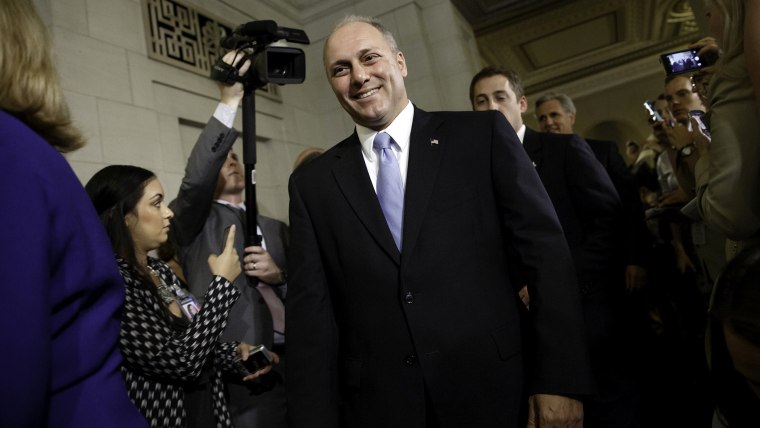The totality of an official's record always matters. This week, for example, it would be easier for House Majority Whip Steve Scalise (R-La.) to overcome the controversy surrounding his appearance at a white-supremacist event in 2002 if he had an otherwise sterling record on issues related to civil rights.
That's not quite the case. Andrew Prokop noted last night:
...Scalise does not have a record of friendliness to African-American causes. When the Louisiana House voted on making Martin Luther King Day a holiday in 2004, 90 members were in favor and Scalise was one of the six against.
Note, as a Republican state lawmaker, Scalise clearly knew the King holiday was going to be approved, but he made a point of voting against it anyway.
To be sure, there are other notable Republicans who rose to national prominence after voting against a day honoring MLK. Former Vice President Dick Cheney (R), for example, voted against the King holiday as a member of Congress in 1978. Five years later, Cheney changed his mind.
Sen. John McCain (R-Ariz.) also voted against it in 1983, though in 1999, he said on "Meet the Press," "We all learn, OK? We all learn. I will admit to learning, and I hope that the people that I represent appreciate that, too. I voted in 1983 against the recognition of Martin Luther King.... I regret that vote."
Scalise, however, voted against the holiday in 2004.
Does this add an unfortunate wrinkle to the Louisiana Republican's defense? It's not unreasonable to think it does.
In the larger context, I saw some suggestions overnight that Republican politics is indifferent to racial division, so the Scalise controversy shouldn't come as a surprise and won't be consequential. There's ample evidence to the contrary.
In 2002, for example, Trent Lott's praise for Strom Thurmond's 1948 segregationist platform cost him his role as Senate Majority Leader.
Last year, when Rep. Steve King used racially charged rhetoric about Latino immigrants, Speaker Boehner called the right-wing Iowan an "a**hole."
Earlier this year, the Republican establishment was quite concerned about Chris McDaniel's Senate campaign in Mississippi in light of McDaniel's role at a neo-Confederate and pro-secessionist conference.
In other words, the party is concerned about its image and reputation when it comes to race. The question is whether or not Steve Scalise's controversy is considered a real threat to that reputation.
